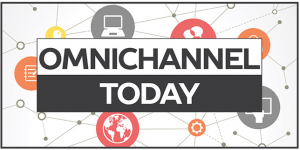Omnichannel Today – Black Friday Edition
Happy Thanksgiving from NectarOM! As we gear up for the eCommerce holidays of Black Friday and Cyber Monday these are the latest news articles we’ve been paying attention to:
JC Penney’s Retail Reinvention
Unlike Nordstrom’s and Macy’s, JCP is on course to exceed holiday expectations during a season where eCommerce and digital platforms are taking away business from retail. The secret, as CEO Marvin Ellison puts it, is finding the balance between the “art” and “science” of retail. JC Penney is taking a completely different approach to their in-store experience, developing attractive new features such as store-within-a-store kiosks for both younger shoppers and the upcoming cohort Millennial-age parents. Next up for the department store? Focusing on the science side of things by making improvements to their eCommerce, supply chain, and data processing abilities.
Amazon’s ingenious scheme to undermine Black Friday
Black Friday and its younger sibling Cyber Monday are a major source of income for the retail industry every year. Since this last Friday, web giant Amazon has taken advantage of the holiday shopping fervor to entice customers with constantly updated deals and featured items, hoping to sway buyers that won’t miss the authentic “Black Friday Experience” of elbowing through crowded stores. That said, certain stores such as Best Buy and Target have responded to Amazon by making their in-store discounts apply to their eCommerce platforms as well.
Facebook Says Nearly One Third of Online Shopping Transactions Are On Mobile Devices
New data from Facebook suggests that its users are becoming much more comfortable with using mobile devices to shop and make purchases. The social media titan expects a 30% increase in the percentage of users who buy on mobile by the end of the fourth quarter. Facebook researchers also observed that about 45% of all shopping occasions involve mobile devices in some fashion, such as during product research that results in a purchase on a desktop.
Retail enters third phase of digital evolution: ‘Emotional’ eCommerce
A new article from the Financial Times discusses how modern shoppers expect brands to develop a relationship with them over social media and other digital platforms. The thought leaders interviewed point to the success of apps like Instagram, Etsy, and Olapic, who offer businesses the ability to showcase their “human side” to potential customers by using memes, shareable posts, and conversation starters to promote fan engagement over social media.
Other stuff we read this week:
How James Murdoch thinks the ad industry should innovate: ‘Empower the Consumer.’
Here’s how advertisers will be able to target TV viewers who see competitors’ ads
Goodbye privacy, hello ‘Alexa’: Amazon Echo, the home robot who hears it all
Volvo Wants to Use Microsoft’s Sci-Fi Glasses to Sell Cars
Check back next time for the latest developments in omnichannel! We’ll bring you news, facts, opinions, and infographics that will help you gain a broad perspective of the industry. Drop in, stick around, and subscribe to our newsletter – and who knows? You just might learn something.




